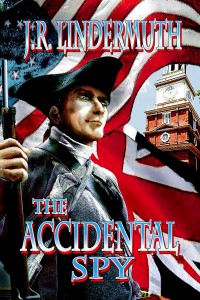 Welcome to my blog. The week of 1–7 July 2011, I’m participating with more than two hundred other bloggers in the “Freedom Giveaway Hop,” accessed by clicking on the logo at the left. All blogs in this hop offer book-related giveaways, and we’re all linked, so you can easily hop from one giveaway to another. But here on my blog, I’m posting a week of Relevant History essays, each one with a Revolutionary War theme. To find out how to qualify for the giveaways on my blog, read through each day’s Relevant History post below and follow the directions. Then click on the Freedom Hop logo so you can move along to another blog. Enjoy!
Welcome to my blog. The week of 1–7 July 2011, I’m participating with more than two hundred other bloggers in the “Freedom Giveaway Hop,” accessed by clicking on the logo at the left. All blogs in this hop offer book-related giveaways, and we’re all linked, so you can easily hop from one giveaway to another. But here on my blog, I’m posting a week of Relevant History essays, each one with a Revolutionary War theme. To find out how to qualify for the giveaways on my blog, read through each day’s Relevant History post below and follow the directions. Then click on the Freedom Hop logo so you can move along to another blog. Enjoy!
Relevant History welcomes back author J. R.Lindermuth, a retired newspaper editor. Lindermuth was born and raised in Pennsylvania’s anthracite coal region. He’s the author of nine novels, and his stories and articles have appeared in a variety of magazines, both print and on line. He writes a weekly historical column for two area newspapers and is librarian of his county historical society, where he assists patrons with genealogy and research. For more information, check his web site and blog, as well as his Facebook and Twitter pages.
*****
Like most wars, the American Revolution was a divisive event. There were those who supported the rebellion and those who did not. There were also a great number who were neutral or who adopted a wait-and-see attitude about the outcome.
 Daniel McCracken, protagonist of my novel, The Accidental Spy, is one of those who desire no part in the war. A young rogue wandering about Pennsylvania and living by his wits, he’s wounded in a run-in with the law. He flees to Philadelphia where he’s rescued and nursed back to health by the lovely ward of Benedict Arnold’s procurement officer.
Daniel McCracken, protagonist of my novel, The Accidental Spy, is one of those who desire no part in the war. A young rogue wandering about Pennsylvania and living by his wits, he’s wounded in a run-in with the law. He flees to Philadelphia where he’s rescued and nursed back to health by the lovely ward of Benedict Arnold’s procurement officer.
Dan finds himself attracted to his nurse. But when her husband returns from the front, he flees again and falls in with a band of British spies. Among their activities is the distribution of counterfeit money.
War is expensive. And it was no less a financial burden in the past.
It didn’t take long for both the British and the rebels to learn that in the American Revolution.
Cash-strapped, the fledgling American colonists who were only decades moved from barter for trade found it convenient to issue script—despite having little hard currency (gold or silver) to back it up. As the war consumed increasing amounts of paper money, its value quickly depreciated.
Counterfeiting was a British strategy developed to take advantage of the American plight, and it plays an important part in my novel. Recruiting Tories loyal to the crown and allowing them to profit at the task was a common tactic the British used to get their false script into circulation.
The money my characters distribute comes from several suppliers including James Smither, an actual Philadelphia engraver who before the war had made plates for Pennsylvania currency. Smither went to New York with the British and was subsequently charged with treason for his contributions to their scheme.
Another ploy mentioned in my story was to include counterfeit money with clothing and other supplies delivered to prisoners of war under flag of truce.
Counterfeiting was not something new to the colonies. The advent of script to replace barter and coins, which were always in short supply, had early prompted counterfeiting in the New World. Peter Long of Philadelphia and his cousin Robert Jenkins were pioneers in the trade in 1739 when they began importing plates and false bills from Europe. They were not the last to see the potential for profit.
The British high command soon recognized a strategic advantage in following the example of the counterfeiters. As early as 1776, they began counterfeiting the Colonial paper with the aim of undermining confidence in the money and the credit of the enemy. New York City became a primary center for this “official” counterfeiting, and the British were so brazen about it they actually advertised in newspapers a willingness to supply anyone going into other colonies supply of the spurious notes for the price of the paper per ream.
Benjamin Franklin commented in an essay on the effectiveness of the British strategy, noting that because of the quantity and the difficulty in telling the real from the false “…the depreciation was a loss to all and the ruin of many.”
By the 1780s it took an estimated 600 Continental dollars to buy supplies worth the equivalent of one Spanish dollar, the silver coin on which the colonies had relied for decades.
Unscrupulous counterfeiters soon pounced on this increased opportunity to ply their trade.
When money is involved, corruption is sure to follow.
What the British saw as strategy and outlaws as opportunity soon attracted emulation by ordinary citizens as well as soldiers of all ranks on both sides. One wag at trial on Long Island said he felt if it was all right for the British to do it he might as well, too. Records show that both officers and enlisted men on both sides eagerly joined in the fraud.
Moving through my story are a number of historic figures, including Joseph Stansbury, a Philadelphia merchant who became the British spymaster in the city and acted as liaison between Benedict Arnold and John Andre; Ann Bates, another Tory spy, and Samuel Wallis, a wealthy Quaker who worked both sides and escaped prosecution. Another historic character is Captain Andrew Lee, who actually did go undercover to investigate the escape of British officers from the American prison at Lebanon. I’ve taken advantage of that incident as the springboard by which my protagonist becomes a hero.
*****
A big thanks to J. R. Lindermuth. He’ll give away a print copy of The Accidental Spy to someone who contributes a legitimate comment on this post today or tomorrow. I’ll choose one winner from among those who comment by Wednesday 6 July at 6 p.m. ET, then publish the name of the winner on my blog the week of 11 July. Delivery is available within the U.S. only.
**********
Did you like what you read? Learn about downloads, discounts, and special offers from Relevant History authors and Suzanne Adair. Subscribe to Suzanne’s free newsletter.
